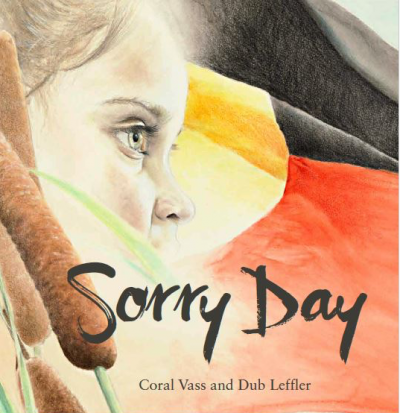
Speech Pathology Australia has announced the winners of its 2018 Children's Book of the Year Awards.
With bookstore shelves and online sites bursting with options, it’s often difficult to know what to choose when buying a book for a child.
Enter Speech Pathology Australia, which for the past 15 years has run its Book of the Year Awards, covering from birth to age 10, as well as an award for an Indigenous children’s book.
Why does Speech Pathology Australia have book awards?
‘It’s because speech pathologists understand the link between language, speech and reading,’ says Gaenor Dixon, President of Speech Pathology Australia. ‘We are in a unique position to recommend books to parents and teachers.’
The winners of the 2018 awards are:
Birth to 3 years
Heads and Tails, written and illustrated by John Canty

A ‘guess the animal’ book, with lots of clues, with the final clue: the animal’s tail. The book also takes the child and parent on an adventure.
The judges said: ‘Heads and Tails has an excellent use of descriptive language, and is based on a relevant and meaningful interest in animals for children of this age category. Simple and repetitive sentence structure, encourages identification by features.’
3 to 5 years
Rodney Loses It!, written by Michael Bauer and illustrated by Chrissie Krebs

Rodney the Rabbit loves to draw. Disaster strikes when Rodney loses his treasured pen – Penny Pen. And so the search for the missing pen begins.
The judges said: ‘The book has a strong narrative, excellent use of rhyme, complex vocabulary, and non-literal language (e.g. ‘drawing caper’). It has a strong structure with a clear beginning, middle and end.’
5 to 8 years
Danny’s Blue’s Really Excellent Dream, written and illustrated by Max Landrak.

Danny Blue lives in a world where everything is blue, where everything is the same. But then one day Danny sees something in a dream that is unlike anything else.
The judges said: ‘The author does an excellent job in creating a sense of wonder, mystery and excitement; and the book has a robust vocabulary and language that is age appropriate. There are many opportunities to explore print, alphabet knowledge, while the illustrations and text work together to provide meaning.’
8 to 10 years
The Grand Genius Summer of Henry Hobler, written by Lisa Shanahan.

Reluctant adventurer Henry Hobbler is worried about his summer holiday camping at the beach. And everyone wants him to ride his new bike without training wheels. He discovers courage through a new friend.
The judges said: ‘The narrative structure of the story is clear and easy to follow, featuring characters who are readily identifiable and easy to connect with. A delightfully easy read that cleverly encompasses the issue of childhood anxiety against the backdrop of a typical Australian summer holiday at the beach.’
Indigenous children
Sorry Day, written by Coral Vass and illustrated by Dub Leffler.

Maggie is at Parliament House in Canberra, waiting with her mother for prime minister Kevin Rudd made the public apology to the Stolen Generations. Maggie becomes separated in the crowd and is lost.
The judges said: ‘The story develops and addresses key issues of the Stolen Generations in a poignant and powerful manner, juxtaposing the past and present while evoking an emotive response through the use of rich vocabulary. Powerful and very beautiful illustrations help tell this dramatic story…’
As part of the awards’ ceremony at the State Library of Victoria, acclaimed children’s author and Australia’s Children’s Laureate Morris Gleitzman was inducted into the group’s Hall of Fame.
You can find out more about the awards on the Speech Pathology of Australia website.
Like this post? Please share using the buttons on this page.
Subscribe to The Parents Website


